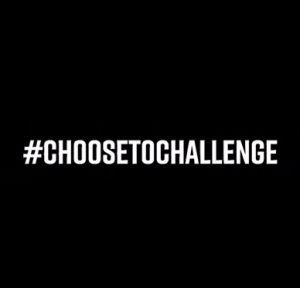On the 8th of March every year, the world celebrates those who identify as women, honours the generations of women on whose shoulders we stand and cheers on the brave ones who tirelessly fight to forge an inclusive world for the generations to come.
The theme for the 2021 International Women’s Day campaign, Choose to Challenge, is a major call to action. It highlights the need to shun all forms of gender inequality and discrimination. Change cannot be experienced without challenge. The time has come for us to step outside the tiny uncomfortable box society expects us to stay still and oppose the espousal of women as an afterthought for leadership positions.
In light of this, three incredible Nigerian women share their thoughts on the complexities of being a woman in a male-dominated society while proffering solutions.
What gender-specific challenges or stereotypes have you had to overcome during your career?

As an Art Director, a huge part of my work requires instructing and directing local artisans in building and set construction... and they are men. I work with a lot of men. Imagine a young girl telling a man over 40 years old what to do and controlling his pay. I struggled to get that respect. In the beginning, I’d find myself relaying information to them through my male assistant but eventually, I had to stand my ground and own my place as the Art Director. I was told, “you sound too soft, they wouldn’t listen to you so you need to sound tougher, you need to learn how to shout!” But I couldn't. I was scared. What if I shout and they refuse to work? I struggled for a while, to find a balance. I watched other women take up roles in production and observed how they related with these men and I adapted. I stopped working with the men who had a problem working with women and I learned how to ignore the whispers. With every day comes a different challenge but never one that a little confidence and courage can’t fix.
- Anita Ashiru
In what ways do you believe a gender-equal world can be created?

I think that nothing unconsciously shapes narratives like the media. We were raised to have misogyny splashed all over our screens and as a result, that is our normal. If more people in the creative space shock our normal and start consistently churning out content that reflects equality, the next generation may be raised on a different normal. Every single creator is a shaper of this narrative. From the movies that have women submitting to men, to the cooking ingredient ads that always have women cooking in the kitchen. But ultimately, religion is our biggest problem with gender inequality, and it is often at this point I throw up my hands, because how do I convince women themselves that men are not above if they will turn around and say God said so?
- Tenyin Ikpe-Etim
How can the world celebrate women’s achievements better and raise awareness against gender bias?

The world can celebrate women’s achievements better by investing in more women financially. Whenever you come across a woman working hard to create something meaningful but is restricted by limited resources, invest in her work as a form of encouragement. Include women in panels, women will always have a better understanding of certain experiences. In terms of raising awareness towards gender bias, people are doing amazing preaching this gospel on social media but for a wider reach, we need to take it offline. Talk to people on the streets, educate your colleagues at work. This approach will further raise awareness against gender bias.
- Ifeoma Nwobu
As an ending note, please, be aware that women have gone way beyond being called heroes in one moment and belittled to domestic capacities in the next one. Treat women with reverence all year round, not just verbally, but by enacting policies that centre women on significant levels.
In your own capacity, how have you chosen to challenge the status quo?

